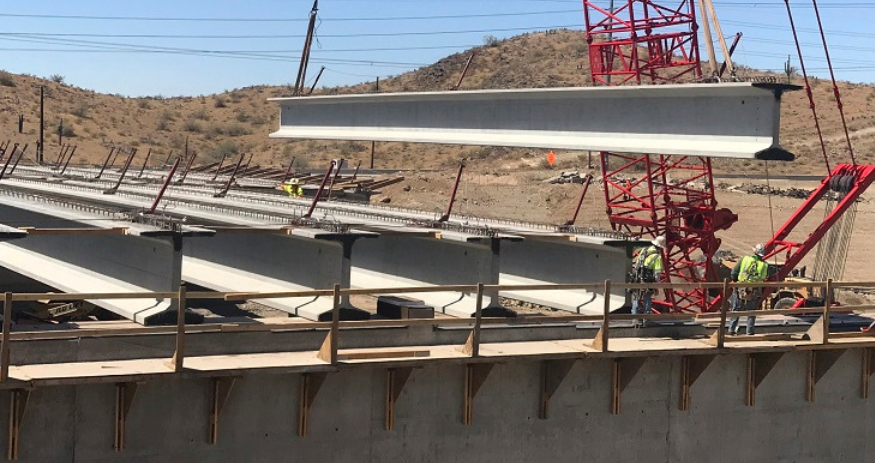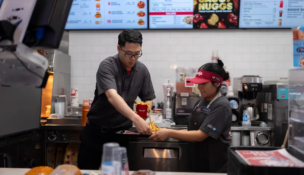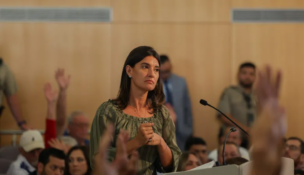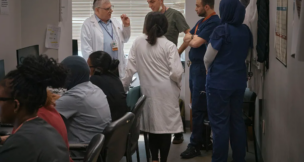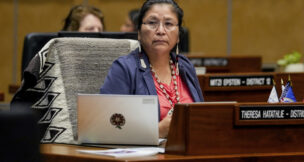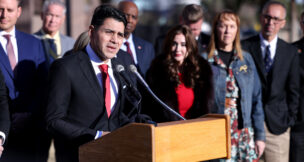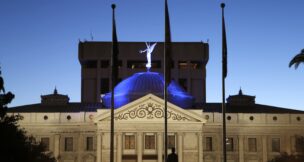Backers of Prop. 479 raise $3M for transportation tax
Reagan Priest Arizona Capitol Times//September 18, 2024//
Backers of Prop. 479 raise $3M for transportation tax
Reagan Priest Arizona Capitol Times//September 18, 2024//
Maricopa County voters will decide whether to extend a half-cent sales tax for transportation projects in November and a bipartisan campaign is spending $3 million to ensure they vote “yes.”
Connect Maricopa, a campaign that launched earlier this year, has amassed a sizable war chest and endorsements from groups across the political spectrum to ensure the passage of Proposition 479. The sales tax, which was originally approved in 1985, would be extended for 20 years if the proposition passes and would fund a variety of infrastructure projects.
Polling done by Noble Predictive Insights in August indicated that more than 60% of Maricopa County voters support extending the tax, but the team behind Connect Maricopa isn’t taking chances.
“We’re not taking anything for granted, because we know there’s a lot of things happening in the political environment,” said Lorna Romero Ferguson, a spokesperson for the campaign.
That $3 million warchest is being put toward digital, mail and TV ads to ensure voters don’t forget about Prop. 479 when combing through Maricopa County’s two-page ballot. According to Romero Ferguson, it doesn’t seem like a formal opposition campaign will be waged against the measure.
“We’ve been able to get support from organizations that usually aren’t on the same side of an issue,” Romero Ferguson said. “I mean, to see business organizations and labor unions come together in support of one issue is pretty rare, which goes to show how this is not a partisan issue or political issue.”
Romero Ferguson said four ballot arguments in opposition to the proposition had been submitted, but 49 had been submitted in favor of it. She said this means the campaign can focus more on making sure voters know what Prop. 479 is and where the revenues from the sales tax will go.
But some politicians have expressed opposition to the measure. Sen. Jake Hoffman, R-Queen Creek, posted his own ballot measure voting guide on X last week that encouraged Maricopa County residents to vote against Prop. 479.
Hoffman has been a critic of the measure since the renewal process began in the Legislature in 2023, when lawmakers were tasked with passing a bill that would send the issue to the ballot. Republicans struck a deal with Gov. Katie Hobbs to ensure that no funding from the transportation tax would be used for light rail expansion projects – something Hoffman frequently opposes.
Hoffman’s ballot measure guide says a Prop. 479 extension would cost voters $24 billion over the next 20 years, but the Maricopa Association of Governments, which creates the plan for the proposition’s revenues, says it will generate $14.9 billion that will be funneled directly to the county’s infrastructure.
A majority of the funding generated by Prop. 479 will go to freeways, roads and arterial projects. According to the MAG, much of Prop. 479’s funding would be dedicated to upgrades to freeways like Interstate 10 and finishing infrastructure projects like Loop 303, while also funding dial-a-ride and accessibility services for older and disabled Valley residents.
John Bullen, MAG’s assistant executive director, said that the earlier iterations of Prop. 479 – Propositions 300 and 400 – created the infrastructure and freeway systems Valley residents rely on today.
“If you look at it, those big, core freeways were all funded through Prop 300,” Bullen said, referencing Loop 101, Loop 202, State Route 51 and the Red Mountain and Santan Freeways.
When Prop. 300 was extended by Prop. 400, those projects were expanded and improved through the half-cent sales tax. Without an extension this year, Maricopa County would lose the majority of its transportation funding, according to Bullen.
“We would not be able to really move forward the transportation infrastructure and the transportation system that I think Valley residents have come to expect and appreciate,” Bullen said. “We wouldn’t be able to keep up with growth in the future and [it would] result in longer commute times, more delayed results.”
Despite concerns about the impact on voters’ wallets, Bullen said it’s important to remember that Prop. 479 isn’t creating a new tax, just extending one that residents have been paying since 1985.
“The amount that folks would be paying on January 1, 2026, is the same exact amount that they would be paying on December 31, 2025,” Bullen said.

